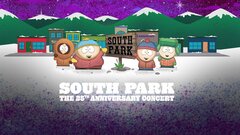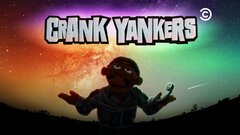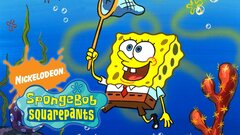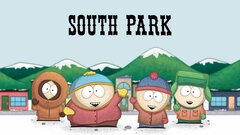Ween
Band
Renowned for their goofy drug-addled humor, use of drum machines and ability to break down a wide range of genres, the chameleon-like Ween became one of America's weirdest and most wonderful cult duos. Vocalist Aaron Freeman and guitarist Mickey Melchiondo met at junior high school in 1984 and after adopting their Ramones-like pseudonyms Gene Ween and Dean Ween, began making numerous home recordings 'designed to be obnoxious.'
By the end of the decade, the pair had self-released six cassette albums including Mrs Slack, The Crucial Squeegie Lip and Axis: Bold as Boognish, the latter of which was named after the bizarre demon god they claim to have sprouted from. Armed with just a DAT machine, the duo also began to take their DIY sound on the road, including support slots with They Might Be Giants, Butthole Surfers and Henry Rollins, and in 1990 released their debut album proper, GodWeenSatan: The Oneness through Twin/Tone.
Following 1991 sophomore The Rod, the band signed to Elektra Records and scored a surprise Top 10 hit in Australia with "Push th' Little Daisies," the first single from 1992's Pure Guava, while in 1994 the band released fourth LP Chocolate and Cheese, added drummer Claude Coleman Jr. to their line-up and appeared in the flop "Saturday Night Live" (NBC, 1975-) film "It's Pat" (1994).
After collaborating with Japanese noise rockers Boredoms under the guise of Z-Rock Hawaii, Ween made an unlikely venture into the world of Nashville with 1996's 12 Golden Country Greats and an accompanying tour which gave their previous material a country twist. The unpredictability continued with 1997's The Mollusk, a nautical-themed concept album which satirised everything from Broadway musicals to prog-rock and '60s Britpop, before bassist Dave Dreiwitz and keyboardist Glenn McClelland expanded Ween to a five-piece.
In 2000, the band released the Lennon/McCartney-inspired White Pepper LP and launched their own internet radio station, WeenRadio, while a year later they released Live in Toronto through their very own label, Chocodog Records. Following 2003's much darker and more personal Quebec, Ween peaked at a career-high of No.69 on the Billboard 200 with 2007's La Cucaracha, but instead of capitalising on its success, spent the next few years focusing on various solo projects.
In 2012, Freeman left the band in order to deal with his substance abuse issues, but the break-up proved to be only temporary when in 2016 the classic line-up reconvened for a series of headline shows and festival slots.




